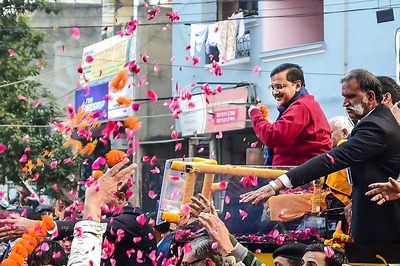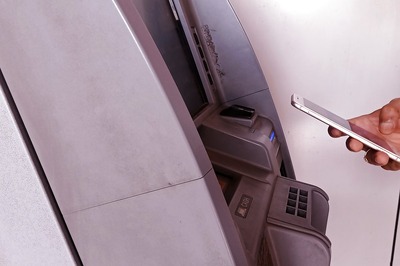
views
Across the Indian subcontinent, and also in Bangladesh (because Internet.org has been launched just like in India), one would have noticed, or experienced a free-of-cost taste of something. By the roadside a fruit-seller will offer a taste of a fruit to his or her customers: a tiny cube of ruddy melon scooped out of a watermelon, or a grape out of a bunch or a piece of the fruit of the season.
Many sweetshops - Bikanerwallah to Fatima Bakery and others - oblige the customers by giving a fragment of a sweet before the purchase assuming he or she will eventually buy it. Here and elsewhere, in restaurants that serve good wine the server will offer a sip of the wine that was ordered because unless you uncork, smell and savour, you do not know whether it is palatable or not: even if you are a gourmet.
At some airports across the world, as you stroll and happen to stumble upon a duty-free shop that boasts of the best eau-de-Cologne you will be allowed to have a free shot of its moisture: spray, inhale it for free; or sniff deeply if the sales girl is next to you, then you make a choice. It is universal to tantalize a person to get him or her sucked into something, initially though: that something will bind the person to it as he or she goes along with the life perceptibly and imperceptibly.
For almost 4 billion people in the world, Mark Zuckerberg is offering a foretaste of the cyberworld: Internet.org.
As the debate rages in India over Net Neutrality and Internet.org the latter had registered 80,00,000 users since its launch. Activists in India protested against the Facebook-promoted Internet.org: ‘Stop VIP culture on the Internet. All sites are equal. #NetNeutrality#’.
Founded in 2013, Internet.org is the brainchild of Facebook’s founder, promoter & CEO Mark Zuckerberg. For this, his social media website has collaborated with other mobile phone operators across the world but in the less-developed and developing countries.
Internet.org’s wish is to bring the unconnected world to get connected with the Internet! How is that possible?
According to Mark Zuckerberg, it is possible by providing it for free though the original content will be stripped down or by only giving the basic services. By enabling Internet-connectivity to the unconnected people of the world, Internet.org users will harness the information and enrich themselves until they can pay more and access full content of the websites. Once they experience the Internet for free, they will be bang ready for the bigger brandwidth and for 3G, 4G, 5G….
However, Internet.org is coming under attack from politicians (in the Opposition), political parties (out of power) and from conscientious social activists: it violates Net Neutrality. Proponents of Net Neutrality assert that Internet.org will allow only few websites of its choice. Thus, it will promote Facebook and its services while pushing down its rivals (unless Mark can buy out that potential would-be rival like he did with WhatsApp) and will also decide who should come in to Internet.org and who should not.
Net neutrality is not giving priority to any entity or company but open to all like the traffic on the Internet now. Net Neutrality proponents fear that Facebook will act as the gatekeeper, and subsequently as the toll-tax collector. In order to shoo away such apprehensions, Mark Zuckerberg clarified this month that Internet.org is open to all the websites that are worthwhile to the customers; and Net Neutrality and Internet.org can co-exist.
Internet.org has been launched in Zambia, Tanzania, Kenya, Colombia, Ghana, India (10 February 2015), Philippines, Guatemala, Indonesia, Bangladesh and Malawi.
Note that Internet.org has no takers in the West! They are inundated with wireless connectivity, and have saturated with it, and that’s what gives Facebook its shivers. What if, if another social media website shoots into the virtual landscape?
How will Internet.org help unconnected people? It will it help them to get connected by enabling their mobile phone (need not be a smartphone) to get basic Internet services for free! Why?
Because Internet is not accessible to all the denizens of the world (connectivity is a human right), one in three are not on Internet (and Facebook), smartphones are expensive and cannot be purchased by two thirds of the world but Internet.org will enable basic mobile phone to have connectivity, and Internet-less mobile-phone users do not know the power of information and connectivity, so Internet.org will give a taste of it to enrich for free.
As Internet.org was made available in Bangladesh, Mark Zuckerberg blogged, “It’s another step towards connecting the world. Bangladesh has more than 170 million people, but fewer than 10% are connected to the internet. Research shows that for every 10 people who gain access to the internet, at least one person is lifted out of poverty.”
Facebook announced the impact of Internet.org in India that it has 8 lakh (.8 million) users. It has partnered with telecom major Reliance Communications to offer free access to over 30 websites without data charges. It said that about 20% of Internet.org users were previously not active on mobile data but it enabled unconnected people to be online though it was offered only for Reliance customers in seven telecom circles.
As the chorus against Internet.org became shriller and shriller, Mark Zuckerberg defended Internet.org in a video-blog, “No company pays to be included in Internet.org. No operator is paid to offer services. Facebook doesn’t even show ads in Internet.org. This programme supports itself. When people use free basic services more of them then decide to pay to access the broader Internet. This enables the operators to keep offering these basic services for free.”
Internet.org is free: people will take it, now and in the long run unless an alternative to it comes by offering free access to Internet’s sites such as WhatsApp (but under Facebook’s belt), Viber, Skype or any other user-friendly and cost-effective multimedia communication tool.
Ultimately, nothing is free in the world (even a vote) and Internet.org (beyond giving basic services to the user). Mark Zukerberg was honest: “It is not sustainable to offer the whole Internet for free, though. It costs tens of billions of dollars every year to run the Internet.”
Internet.org is an appetizer to Internet for the unconnected only.
(Kovuuri G. Reddy is the author of ‘Handbook of Journalism & Media: India, Bharat, Hindustan’. He can be reached at [email protected])


















Comments
0 comment